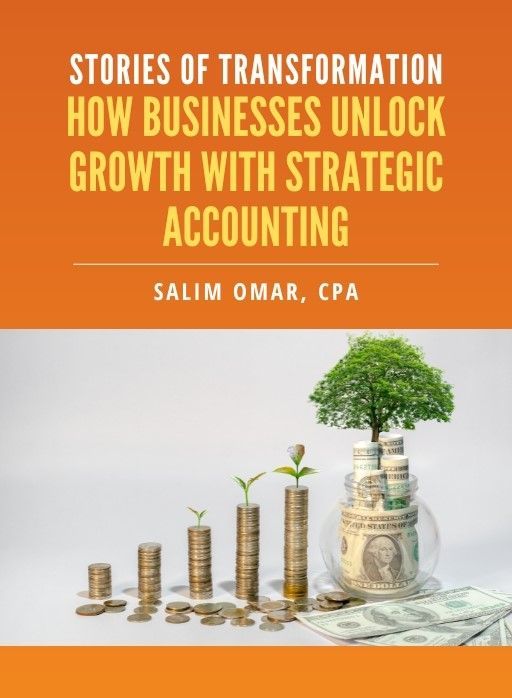Last-Minute Deduction Planning: What Business Owners Should Know
When the Year-End Clock Is Ticking
It’s December, your books are nearly closed, and you’re wondering: Is there still time to lower my tax bill?
Good news — yes, there is. The final weeks of the year can make a real difference if you act strategically. But last-minute deduction planning isn’t about throwing money at random expenses or scrambling to “spend it all.” It’s about being intentional, documented, and aligned with IRS rules.
At Straight Talk CPAs, we’ve seen both sides of the coin — business owners who saved thousands with smart timing, and others who left easy deductions untouched simply because they ran out of time or clarity.
Let’s make sure you’re not in that second group.
Why Last-Minute Planning Still Matters
You can’t rewrite the year, but you can fine-tune how your income and expenses look before it’s too late. A few well-timed moves in December can:
- Reduce your taxable income
- Improve cash flow for Q1
- Keep you compliant while avoiding audit red flags
- Set a stronger foundation for next year’s planning
It’s not about gaming the system — it’s about
making the system work for you.
1. Accelerate Legitimate Expenses
If you’ve been holding off on business purchases you truly need — software, equipment, or professional fees — consider paying for them before year-end.
Why? Under Section 179, you can often deduct the full purchase price of qualifying equipment or technology in the year you buy it.
Example: Buying that new laptop or upgrading your CRM system on December 28 could still reduce this year’s taxable income.
Pro tip: Only accelerate expenses that have a real business purpose. The IRS can spot “panic spending” easily.
2. Defer Income (If It Makes Sense)
If you operate on a cash basis, you might delay sending certain invoices until January. Pushing revenue into the next year can lower this year’s taxable income — but timing matters.
Use this carefully. Don’t defer income if it will harm cash flow or complicate client relationships. The goal is to smooth taxes, not create new headaches.
3. Max Out Retirement Contributions
Retirement contributions are among the most powerful last-minute deductions.
Solo 401(k)s, SEP IRAs, and SIMPLE plans can all help you save for your future
and reduce taxable income.
If you haven’t yet contributed the max allowed, do it before year-end (or before your plan deadline). It’s one of the most painless ways to save big on taxes while investing in yourself.
4. Review Bonuses and Payroll Timing
Salary mistakes don’t have to derail your business. Avoiding them isn’t about perfection—it’s about strategy, consistency, and documentation. With proactive planning, the right guidance, and disciplined payroll practices, you can stay IRS-compliant while paying yourself and your employees confidently.
Think of it this way: the IRS isn’t an enemy, but ignoring their rules is a risk. By paying yourself and your team smartly, you create a defensible, smooth, and stress-free payroll process. That’s real peace of mind for a busy business owner.
5. Clean Up Your Books
It’s not glamorous, but it’s gold. Reconciling your accounts, documenting expenses, and categorizing transactions properly can surface deductions you forgot existed.
Missed mileage? Unrecorded vendor bills? They add up fast. A clean set of books ensures every eligible deduction makes it onto your return — and keeps you audit-ready.
Common Misconceptions
“It’s too late to do anything.”
Not true. Even in the last week of the year, there are often multiple legitimate actions to optimize your return.
“I’ll just catch it next year.”
You can’t retroactively claim missed deductions once the tax year closes. Prevention beats correction.
“My CPA will handle it automatically.”
A good
CPA can guide strategy — but they need your input. Communication before year-end is key to spotting opportunities.
How a CPA Can Help
A CPA looks beyond what you spent to see why and when you spent it. They’ll evaluate your timing, entity type, and cash flow to find legal ways to reduce your tax burden.
They can also ensure deductions are documented properly — because a good deduction is worthless if it’s not defensible.
Bottom Line
Last-minute deduction planning isn’t about rushing. It’s about being smart, strategic, and intentional.
If you close your year with clarity — knowing where your money went, what’s deductible, and how to prepare for next year — you’re already ahead of most business owners. And if you’re unsure where to start? Partner with a CPA who doesn’t just file your taxes but helps you think like a strategist.
Because smart deduction planning doesn’t happen by luck — it happens by design.
Want to review your year-end strategy?
Straight Talk CPAs can help you spot missed deductions and make confident, compliant moves before the clock runs out.
Free eBook:
Stories of Transformation


Salim is a straight-talking CPA with 30+ years of entrepreneurial and accounting experience. His professional background includes experience as a former Chief Financial Officer and, for the last twenty-five years, as a serial 7-Figure entrepreneur.





